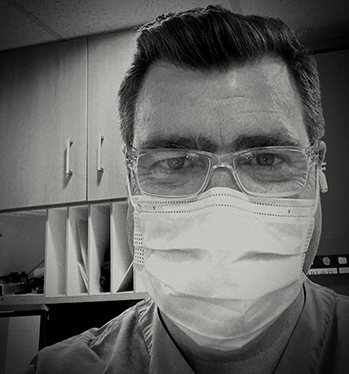
To see how we’ve changed health care in the past few months has been the experience of a lifetime. We’ve learned to reprocess N95 respirators with hydrogen peroxide vapor. We’ve adopted an incident command structure for quick decision-making and communication. And we’ve found ways to quickly train health care workers for new roles needed to meet the pandemic. For example, we now have a safety officer who makes sure our caregivers are safe when caring for COVID-19 patients, and we’ve focused more than ever on the mental well-being of our workforce.
This is “a whole new paradigm for providing health care. And it’s working.”
We’ve also made changes to help the community better access the health care system. We’ve pivoted from doing a lot of in-person care to virtual care. That includes everything from having an online symptom checker, to having a hotline for patients to get advice, to offering care through telehealth. Instead of coming to an emergency department to get tested for COVID-19, you can now call ahead and talk with a provider who can determine what testing you may need. And you can stay in your car, go to one of our drive-up testing sites and get tested in the safest way possible—that’s a whole new paradigm for providing health care.
And it’s working. The way we’ve traditionally provided health care is far too expensive. I think one lesson we will learn from this is that there are new, better ways to provide care.
Dr. Mike Woodruff ’91, senior medical director, Office of Patient Experience, Intermountain Healthcare, Salt Lake City